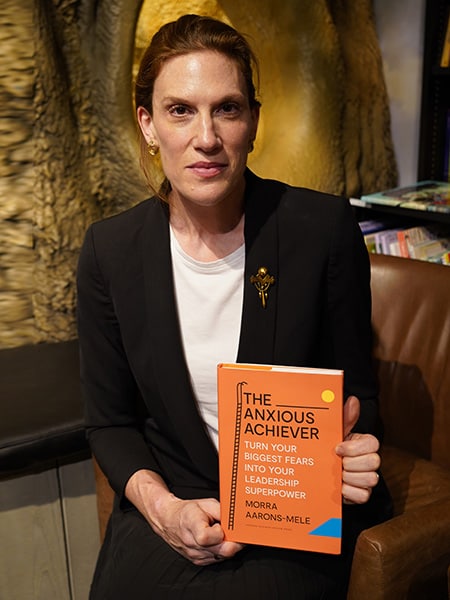
Anxiety can be turned into a leadership superpower: Morra Aarons-Mele
Real leaders need to be vulnerable, authentic and skilled at driving their teams through challenging times, says the author of The Anxious Achiever. She reframes how we think about anxiety in the context of leadership and organisations
 Morra Aarons-Mele, author of The Anxious Achiever
Image: Erykah Chanel
Morra Aarons-Mele, author of The Anxious Achiever
Image: Erykah Chanel
Q. How do you perceive the link between anxiety and leadership?
Anxiety is an emotion. And whether you have been anxious since birth (like me) or you are managing through challenging times, anxiety is a part of leadership. It is not an external threat over which you have no control, but an internal state you can learn to manage and learn from. When you understand your anxiety and learn how to leverage it, you develop a leadership superpower. When you are attuned to your emotions and what they are trying to tell you, you become a self-aware, conscious and a thoughtful leader.
I wrote this book because my own anxiety propels me forward, but it’s painful and sometimes all-consuming. I call us anxious achievers. Anxious achievers are goal-oriented, future-oriented and prized team members because we go the extra mile, and nothing less than the best will do.
Q. You write: “Anxiety at work is a double-edged sword.” Why do you think so?
When unmanaged, it can be a destructive force—as overwork, perfectionism, micro-management, unhealthy diets, drinking or substance use all impact today’s workplace experience. But if harnessed constructively, it can be a catalyst for growth, helping channel superpowers like greater vision, empathy and communication skills.







